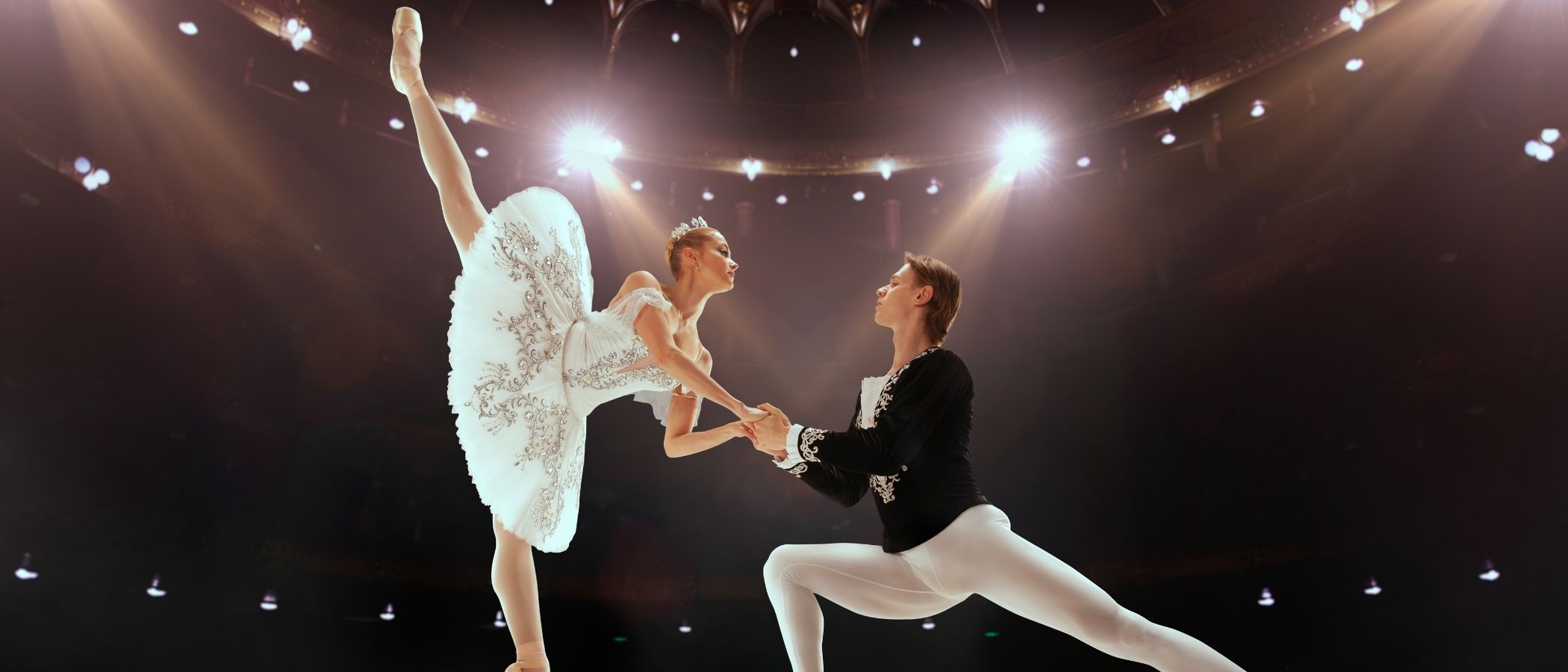Ballet Culture: Pleasure/Pain
Course Overview

Course Information
- Course Number:
- DANC 455W
- Credit:
- 4
- Grading:
- Letter-based Grading A-F
- Categories:
- The Arts / Theatre
Program Information
- Summer College Program
Emory Summer College is a nonresidential program in which exceptional high school students, who have completed their sophomore or junior year, may enroll in Emory undergraduate courses and earn college credit.
Course Dates and Details
| Program | Course Dates | Class Time | Format | Status |
|---|---|---|---|---|
| Summer College Program | Session 1: Sat, May 17 - Thu, Jun 26, 2025 |
| online | open |
Instructors
Mara Mandradjieff
Mara Mandradjieff earned her PhD in dance at Texas Woman’s University, where she received the Dance Department’s “Outstanding Writer Award.” She serves as an Associate Editor for Dance Chronicle and has presented research internationally with scholarship published in Dance Research Journal (forthcoming), Women & Performance: A Journal of Feminist Theory, Feminist Media Studies, Text & Performance Quarterly, Dance Chronicle, Journal of Dance Medicine & Science, Journal of Dance Education, and a chapter in The Oxford Handbook of Contemporary Ballet.
Mandradjieff currently has two monographs in process. The first employs the ballet Coppélia’s legacy to establish a posthuman theory termed “human performativity” and investigate various forms of objectification. In 2021, the American Society for Theatre Research awarded Mandradjieff the Jessica Berson Dance Research Grant in support of this study. Mandradjieff’s second book critiques ballet body aesthetics of the late twentieth and twenty-first century through a feminist fat studies lens, revealing fatphobia’s entangled relationship to racist, sexist, and ableist practices and beliefs within classical ballet. Both works speak to her interest in ballet, body studies, and new materialism.
Mandradjieff’s written scholarship intertwines with her choreographic projects that consider ballet’s potential in investigating body politics. Her choreography explores how ballet might function in a self-reflexive manner, critiquing its own limitations while offering alternative possibilities. Mandradjieff has presented such work at the University of Pittsburgh, Kennesaw State University, and Emory University (Atlanta and Oxford campuses) and has additionally shared performance art pieces through her own body at multiple conferences. During her time at KSU, Mandradjieff had the privilege of serving as the rehearsal director for two separate Israeli guest choreographers, Ido Tadmor and Yoram Karmi, as well.
As a dancer, Mandradjieff began her ballet training at Pittsburgh Youth Ballet, where she performed principal roles in George Balanchine’s Stars and Stripes, Serenade, Valse Fantaisie, and Garland Waltz. Her summers were spent dancing at the School of American Ballet, the official school of The New York City Ballet. After earning her BA and MEd, Mandradjieff returned to performing and went on to dance professionally with Bodiography Contemporary Ballet, Opera Theater of Pittsburgh, Opera Columbus, Columbus Dance Theatre, Texture Contemporary Ballet, and The Georgia Ballet, where she performed principal roles in The Nutcracker and George Balanchine's Who Cares.
Inspired by the joy and healing potential of dance, Mandradjieff established and served as the Executive Director of the 501(c)(3) nonprofit Lume Foundation for over a decade. Lume was an organization that used dance to engage individuals at healthcare facilities, particularly Children’s Healthcare of Atlanta. Mandradjieff is excited to continue exploring intersections of dance and healing through her new collaboration with Nadine Kaslow’s Restorative Movement Project (part of the Nia Project through the Emory’s School of Medicine).